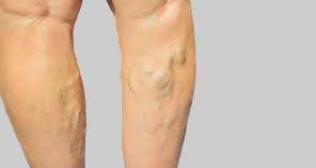About Vascular Surgery
Introduction
Vascular surgery, a vital specialty in medicine, addresses the complex network of blood vessels in the body. The vascular system includes arteries, veins, and lymphatic circulation, which are critical for overall health. Vascular surgeons meticulously diagnose and manage diseases affecting these pathways, excluding those of the heart and brain. Employing a spectrum of treatments from medication to minimally invasive procedures and surgical reconstructions, they safeguard the integrity of these vital conduits.
Common Conditions Managed by Vascular Surgery
The incidence of vascular diseases, including disorders affecting blood vessels and circulation, has notably increased in India over the past decade. Some of these conditions include:
Carotid Artery Disease: Carotid artery disease, characterized by the narrowing or blockage of neck arteries supplying blood to the brain, often stems from the accumulation of fatty plaques. In severe cases with a high risk of stroke, vascular surgery may be required for optimal management and prevention.
Deep Vein Thrombosis: It refers to the formation of clots in a deep vein, posing the risk of dislodging towards the lungs, potentially leading to a life-threatening event. When medications alone prove insufficient to restore healthy circulation, procedures performed by vascular surgeons provide a vital solution for optimal management and patient safety.
Atherosclerosis: This condition is caused by the accumulation of fats and cholesterol in artery walls, which can lead to blockages, necessitating vascular surgery in severe cases to restore blood flow and reduce the risk of serious cardiovascular events.
Varicose Veins: Varicose veins, characterized by dilated and enlarged veins, primarily affect the lower extremities, leading to discomfort and cosmetic implications. In cases of treatment-resistant symptoms, vascular surgery effectively resolves the condition by addressing the underlying venous insufficiency.
Causes of Vascular Diseases
Atherosclerosis: The buildup of plaque in the arteries, narrowing and restricting blood flow.
Hypertension: Extended periods of elevated blood pressure can result in damage to the blood vessels.
Diabetes: It increases the risk of atherosclerosis and damages small blood vessels.
Smoking: It damages the walls of blood vessels and increases the risk of atherosclerosis.
Obesity: Excessive weight puts strain on the heart and blood vessels.
High Cholesterol: Elevated cholesterol levels can result in plaque buildup in arteries.
Family History: Genetics can play a crucial role in predisposing individuals to vascular diseases.
Sedentary Lifestyle: Lack of physical activity can contribute to poor circulation and vascular problems.
Age: The risk of vascular diseases increases due to natural wear and tear on blood vessels.
Poor Diet: High intake of unhealthy fats, sugars, and processed foods can contribute to vascular issues.
Prevention of Vascular Diseases
Before proceeding with the surgery, the consultant guides the patients toward risk factor modification to prevent disease progression or recurrence. They might recommend:
Promoting smoking cessation
Diabetes management
Healthy dietary modifications
Appropriate footwear that offers both preventive and therapeutic benefits
Diagnosis
Clinical Examination: The cornerstone of vascular diagnosis often relies on clinical assessment, where symptoms guide the therapy before moving to diagnostic tests.
Non-Invasive Vascular Laboratory: This is an essential component of vascular diagnosis, often surpassing invasive methods. The use of a duplex scan is integral for the precise evaluation of vascular anatomy and blood flow characteristics.
Specific Imaging Modalities:
Computed Tomography (CT): Common and valuable for detailing various vascular diseases
Magnetic Resonance Imaging (MRI): An alternative method for vascular evaluation
Digital Subtraction Angiography (DSA): Primarily performed before endovascular procedures and serves as a complementary modality post-open surgical intervention
Types of Vascular Surgical Techniques
Vascular surgery involves the repair of all blood vessels, excluding intracranial vessels, the heart, and the aortic arch. Techniques include exposure of vessels, vascular suturing, and the use of grafts for elective and emergency cases. The different types of vascular surgeries are as follows:
Carotid Artery Surgery (Endarterectomy): Surgical removal of plaque buildup in the carotid artery, which reduces the stroke risk and improves blood flow to the brain
Endovascular Aneurysm Repair: Minimally invasive procedure using stent grafts to reinforce weakened artery walls, preventing the risk of aneurysm rupture
Thrombectomy: Surgical removal of blood clots from arteries or veins, restoring normal blood flow and preventing complications like stroke or pulmonary embolism
Peripheral Arterial Bypass: Redirecting blood flow around blocked arteries in the legs, often using grafts to restore circulation and alleviate symptoms of peripheral artery disease
Varicose Vein Treatment: Techniques such as sclerotherapy or laser therapy to eliminate varicose veins, improving circulation and reducing discomfort
Deep Vein Thrombosis Treatment: Surgical interventions to remove clots from deep veins, preventing the risk of embolism and long-term complications
Arteriovenous Fistula Creation: Creation of a direct connection between an artery and a vein, commonly performed for dialysis access in patients with kidney failure
These procedures, ranging from carotid artery surgeries to thrombectomies and beyond, are integral in managing vascular conditions, improving blood flow, and reducing the risk of serious complications.
Postoperative Care
Advancements in minimally invasive techniques, like endovascular repair, and enhanced perioperative anesthesia have minimized ICU admissions, marking a significant shift towards efficient postoperative management in major vascular surgeries. However, regardless of the type of vascular surgery, the following four essential components of postoperative care are universal to ensure optimal recovery and outcomes following vascular surgical procedures:
Hemodynamic management
Pain management
Fluid management
Nutrition
Vascular surgery is the forefront of medical advancements with novel approach to managing difficult vascular conditions. With a focus on prevention, precise diagnosis, and effective interventions, vascular surgeons play a pivotal role in improving patient outcomes and quality of life.
Our Team of Experts
View allMedical Procedures for Vascular Surgery
View allExplore blogs
View allRelated Specialities
Other Specialities
-
Explore Hospitals for
Fortis Cancer Institute, Defence Colony, New Delhi Fortis Memorial Research Institute, Gurgaon Fortis CDOC, Chirag Enclave, New Delhi Fortis Escorts Heart Institute, New Delhi Fortis Flt. Lt. Rajan Dhall Hospital, Vasant Kunj, New Delhi Fortis La Femme, Greater Kailash II, New Delhi Fortis Escorts Hospital, Faridabad Fortis Hospital, Noida Fortis Hospital, Shalimar Bagh, New Delhi Fortis Escorts Hospital, Amritsar Fortis Hospital, Mohali Fortis Escorts Hospital, Jaipur Fortis Hospital, Anandpur, Kolkata Fortis Hospital CG Road Bangalore Fortis Hospital - Greater Noida Fortis Hospital & Kidney Institute, Gariahat, Kolkata Fortis Hospital BG Road Bangalore Fortis Nagarbhavi Bangalore Fortis Hospital, Rajajinagar, Bengaluru Fortis Hospital, Richmond Road, Bengaluru Hiranandani Fortis Hospital, Vashi, Mumbai Fortis Hospital, Mulund, Mumbai Fortis Hospital, Kalyan, Mumbai Fortis Hospital, Ludhiana S L Raheja Hospital, Mumbai Fortis Hospital Mall Road, Ludhiana Fortis Hospital,Manesar,Gurugram -
Explore Doctors for by Hospital
Doctors in Fortis Cancer Institute, Defence Colony, New Delhi Doctors in Fortis Memorial Research Institute, Gurgaon Doctors in Fortis CDOC, Chirag Enclave, New Delhi Doctors in Fortis Escorts Heart Institute, New Delhi Doctors in Fortis Flt. Lt. Rajan Dhall Hospital, Vasant Kunj, New Delhi Doctors in Fortis La Femme, Greater Kailash II, New Delhi Doctors in Fortis Escorts Hospital, Faridabad Doctors in Fortis Hospital, Noida Doctors in Fortis Hospital, Shalimar Bagh, New Delhi Doctors in Fortis Escorts Hospital, Amritsar Doctors in Fortis Hospital, Mohali Doctors in Fortis Escorts Hospital, Jaipur Doctors in Fortis Hospital, Anandpur, Kolkata Doctors in Fortis Hospital CG Road Bangalore Doctors in Fortis Hospital - Greater Noida Doctors in Fortis Hospital & Kidney Institute, Gariahat, Kolkata Doctors in Fortis Hospital BG Road Bangalore Doctors in Fortis Nagarbhavi Bangalore Doctors in Fortis Hospital, Rajajinagar, Bengaluru Doctors in Fortis Hospital, Richmond Road, Bengaluru Doctors in Hiranandani Fortis Hospital, Vashi, Mumbai Doctors in Fortis Hospital, Mulund, Mumbai Doctors in Fortis Hospital, Kalyan, Mumbai Doctors in Fortis Hospital, Ludhiana Doctors in S L Raheja Hospital, Mumbai Doctors in Fortis Hospital Mall Road, Ludhiana Doctors in Fortis Hospital,Manesar,Gurugram



















